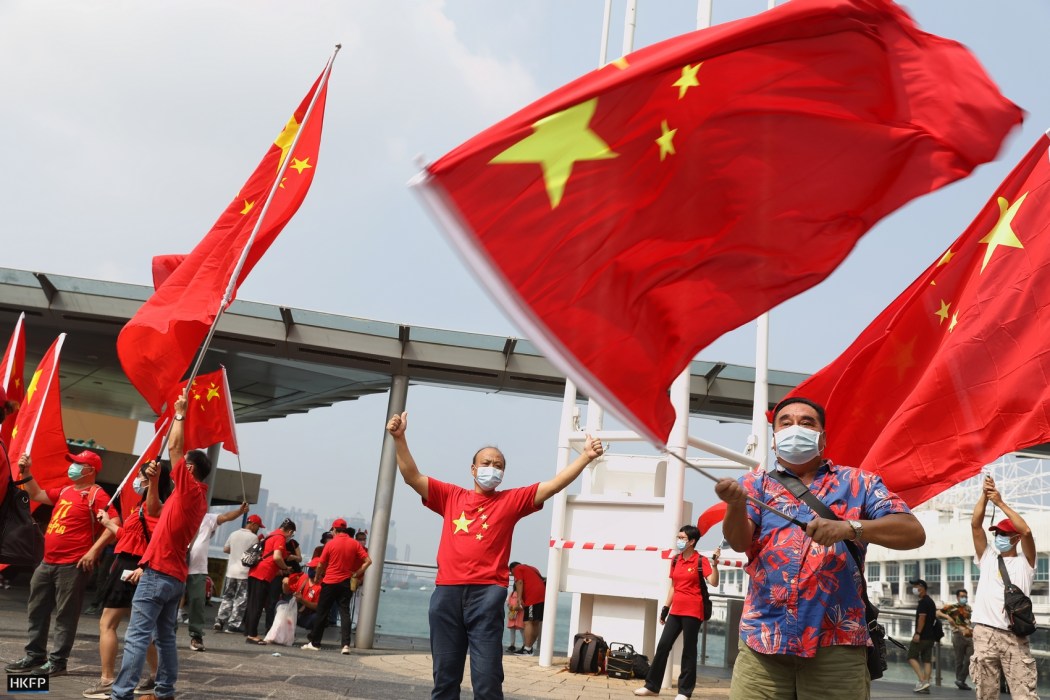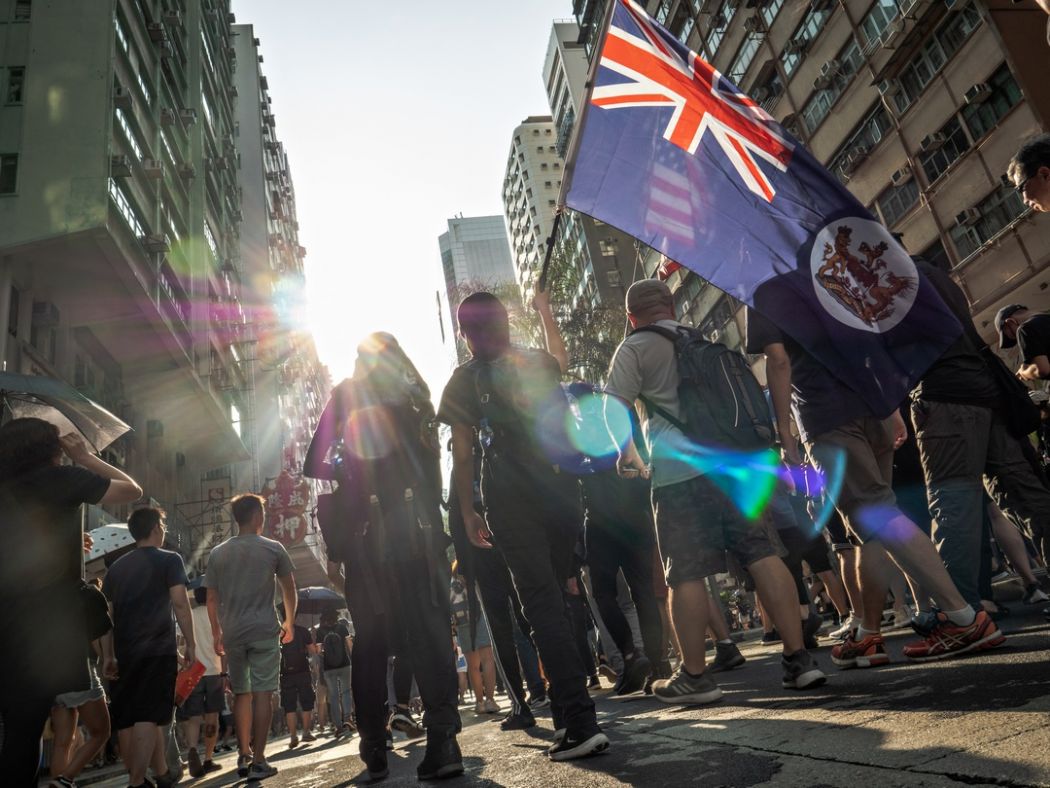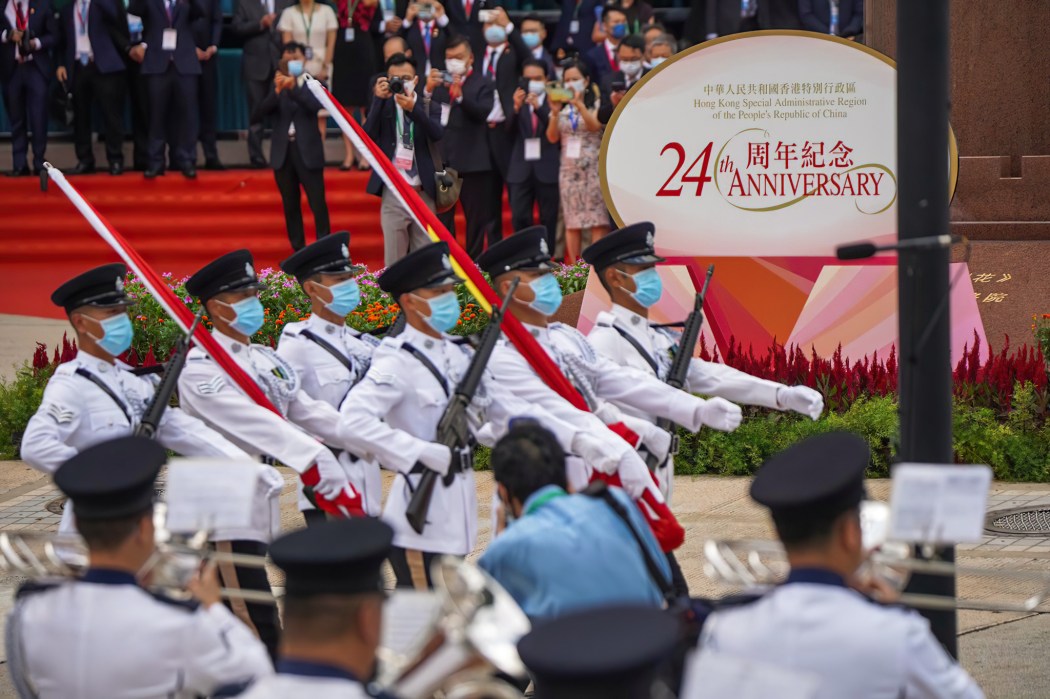Unless I am very much mistaken, it has been decreed that the anniversary of the founding of the People’s Republic of China is supposed to be a joyous occasion with much to celebrate. Why then in Hong Kong was it necessary to mobilise some 8,000 police officers to maintain order and prevent any unwarranted manifestations of criticism?

Moreover, why was the public excluded from the main celebrations, while it was deemed necessary to conduct the proceedings in a siege-like atmosphere behind barricades?
What does this tell us about the reality of the new order that has been put in place since the imposition of the National Security Law 15 months ago?
According to the government things have much improved since then, order has been restored and Hong Kong is well placed to enjoy a much brighter future.
The reality is that the regime is petrified of the people and so insecure that it cannot contemplate celebrating what it describes as a joyous occasion without police protection on a level unseen until the NSL came into force. Just to rub in the comparison, levels of police mobilisation were way beyond those of the old colonial order for set-piece events.

Before moving to Hong Kong in 1987 I was sent to cover a visit by the Queen, Britain’s head of state a year before. I remember asking the then rather helpful police press people what sort of precautions were being taken to ensure the monarch’s safety. The question evoked some surprise because the police were not expecting any problems and although an honour guard had been mobilised, there was only a low-level police deployment to protect the Queen. In the set-piece way that these things were organised, she was given opportunities to meet ordinary citizens.
The idea of such a relaxed attitude towards the visit of a PRC dignitary in the new improved order is laughable. Even local officials barely dare venture out on the streets without extensive police protection. Whereas the last Governor of Hong Kong could amble around pressing the flesh, Carrie Lam, the Chief Executive in Name Only, does not dare venture out without a phalanx of armed police sheltering her from any possible casual contact with the public.
Indeed, the suspicion lurks that one reason why Chris Patten’s name is greeted with such venom by the current rulers simply comes down to jealousy over his popularity and ease of contact with the people he was governing.

Such is the paranoia of the current regime that it even banned reporters from two news outlets (Stand News and Citizen News) from covering the anniversary ceremony, presumably on the grounds that their patriotism was suspect. Such restrictions on access to public events were not in the past imposed on reporters from the communist media such as Ta Kung Pao or Wen Wei Pao, who, unless I am very much mistaken, represented news outlets openly hostile to the colonial regime.
And, just in case anyone missed the obsession with security that grips the CENO, she devoted great swathes of a speech that was supposed to be celebrating the birth of the PRC to comments about the security situation.
The one thing that unites the behaviour of all authoritarian regimes is their extreme fear and distrust of the people they rule. While professing a deep love for the people and claiming to rule in the name of the people, they resolutely keep their distance.
The argument is made that this distance is justified because the regime is hard at work bettering the lives of their subjects. Yet what we have seen in Hong Kong? Poverty is rising, unemployment is high, the appalling housing conditions of the masses remain appalling, and prices rise as wages fall in real terms.

Of course, these issues are mentioned in official dispatches, but the real efforts of the government are devoted to putting dissidents behind bars, destroying the whole edifice of civil society and ensuring that absurdity is allowed to flourish by confirming the absurd in writing.
This was manifest in a copious document drawn up the born-again commissars now running the public broadcaster. It is crammed full of stipulations as to what cannot be done, with zero attention paid to how RTHK might improve the quality of its output. This broadcaster was once a gem in Asian public broadcasting, producing much loved programming. It is now reduced to a hollowed out shell – not quite sunk to the depths of CCTV but rapidly heading in that direction.
And then there’s the new goose-stepping style of police parades – what more could the New Hong Kong ask for to complete its happiness under the new order?
Support HKFP | Policies & Ethics | Error/typo? | Contact Us | Newsletter | Transparency & Annual Report | Apps
| HKFP is an impartial platform & does not necessarily share the views of opinion writers or advertisers. HKFP presents a diversity of views & regularly invites figures across the political spectrum to write for us. Press freedom is guaranteed under the Basic Law, security law, Bill of Rights and Chinese constitution. Opinion pieces aim to point out errors or defects in the government, law or policies, or aim to suggest ideas or alterations via legal means without an intention of hatred, discontent or hostility against the authorities or other communities. |
Help safeguard press freedom & keep HKFP free for all readers by supporting our team

More HKFP OPINION:
HKFP has an impartial stance, transparent funding, and balanced coverage guided by an Ethics Code and Corrections Policy.
Support press freedom & help us surpass 1,000 monthly Patrons: 100% independent, governed by an ethics code & not-for-profit.










